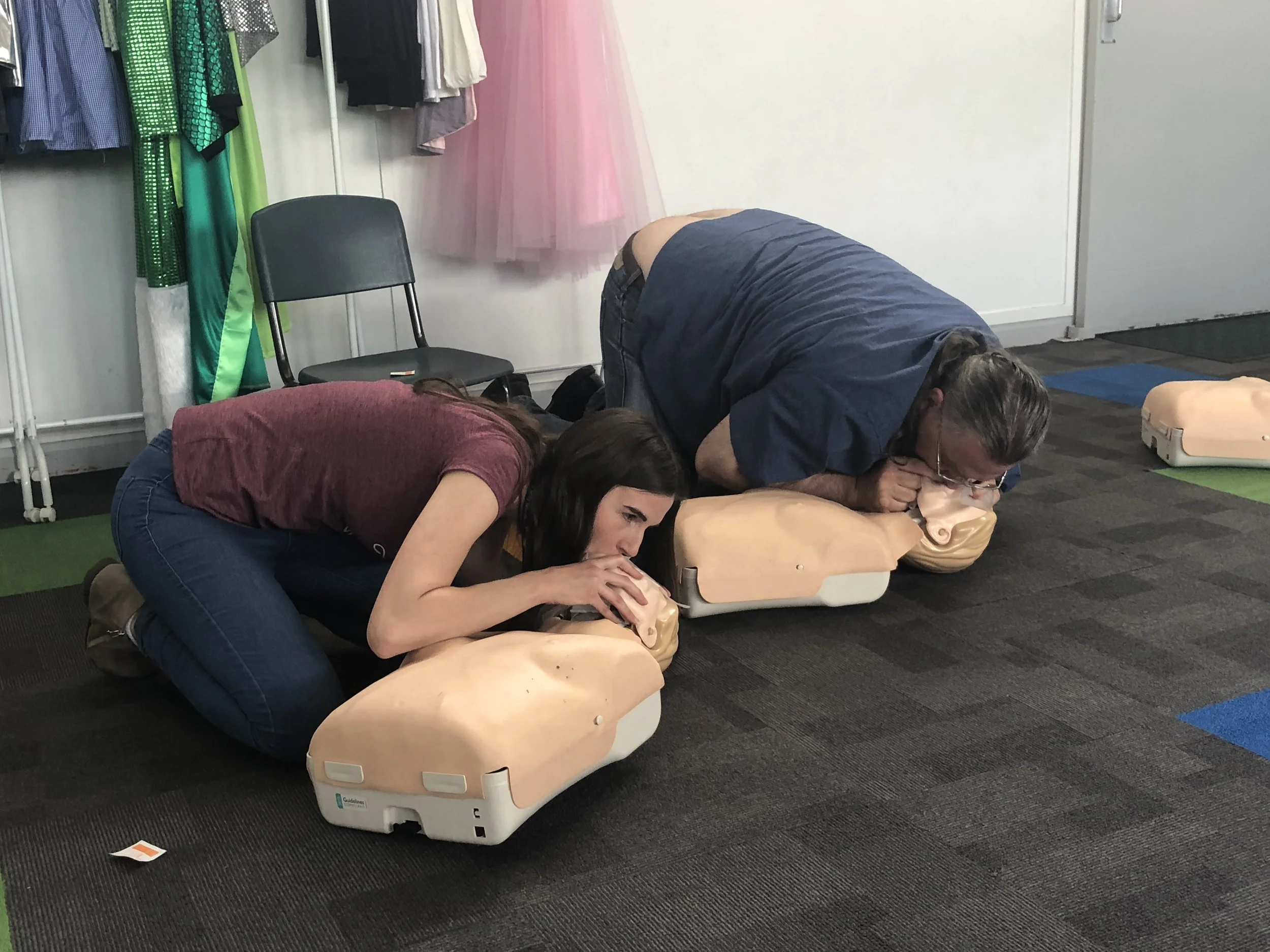FIRST AID SERVICES TRAINING 4U delivers nationally recognised First Aid training and assessment on behalf of the training provider, Eclipse Education, RTO #32252. All students effectively become students of Eclipse Education.
As the training provider, Eclipse Education will provide our students with the online training components. They also provide technical support required to assist with this part of the training. FIRST AID SERVICES TRAINING 4U will facilitate the practical training at the students’ venue, i.e. we come to your nominated venue to complete the practical training. This part of the training course allows each student to put into practise various parts of first aid in scenarios and situations. This training is compliant with all provisions of the Australian Resuscitation Council’s technical guidelines, utilising a variety of first aid training manikins, ‘training defibrillators’, ‘training Epipens/Anapens’, and demonstrating a variety of bandaging techniques on each other to demonstrate the students’ new skills.
Following the successful completion of all required components of the training, Eclipse Education (RTO issue nationally-recognised certificates or statements of attainment to our students. Certificates for completion of ‘Apply First Aid’ (HLTAID011) and ‘Apply First Aid in an Educational or Child Care situation’ (HLTAID012), which incorporate ‘Apply CPR’ (HLTAID009) are valid for three years from date of completion. In order to remain compliant with the Australian Resuscitation Council’s national training requirements to maintain a student’s skills, the expectation is that students complete CPR (HLTAID009) training annually in the interim years between full training courses. Note: this is an industry-wide expectation. ALL first aid training organisations suggest that students follow this recommendation to remain compliant and ready in case of need!
Based in Queenscliff, FIRST AID SERVICES TRAINING 4U offers nationally-recognised First Aid courses on the Bellarine Peninsula, on the Surf Coast and in the Greater Geelong areas.
We offer personalised training in Personal and Workplace First Aid, including stroke, anaphylaxis and asthma, CPR and AED training. Our aim is to help our clients to learn, develop, and maintain their First Aid training and skills in caring and supportive environments.
We are mobile - We do not have our own training facility per se, we come to your location: your home, office, school or workshop.
The minimum number of students in a class is two persons. This allows for students to practise some skills with a partner, such as Basic life Support, safe rolling practises, and bandaging each other, while also maintaining a ‘safe learning’ environment for all concerned.
First aid training equipment provided
The following equipment is provided by FAST 4U for our students’ use during our First Aid training courses and assessments:
A PowerPoint slide presentation of all relevant topics
Adult, child and infant resuscitation manikins for the purpose of assessment of CPR procedures
We utilise ‘female’ torsos, as well as the usual ‘male’ torsos for use in Basic CPR training, which places us at the top of the CPR training industry
A particular point of difference between us and other training organisations is that our manikins are ‘culturally diverse’, i.e. as well as the usual ‘light coloured’ manikins that are usually presented in class, we have a number of dark skinned manikins for our students to use. They are adult and child sized… and infants! Again, this places us at the top of the CPR training industry
CPR training face shields
Roller bandages
Triangular bandages
Trauma dressings
Placebo bronchodilators and spacer devices
Adrenalin auto-injector training devices, e.g. Epipen and Anapen
Automated External Defibrillator (AED) training devices
Clothing requirements
Learners should wear loose, comfortable clothing that is appropriate for delivering CPR on the floor.
Learners must be physically capable of bending and kneeling to provide first aid to an adult person lying on the floor. This includes performing CPR on the floor for up to 5 minutes.
Non-certified Workshops
Certified Workshops
















